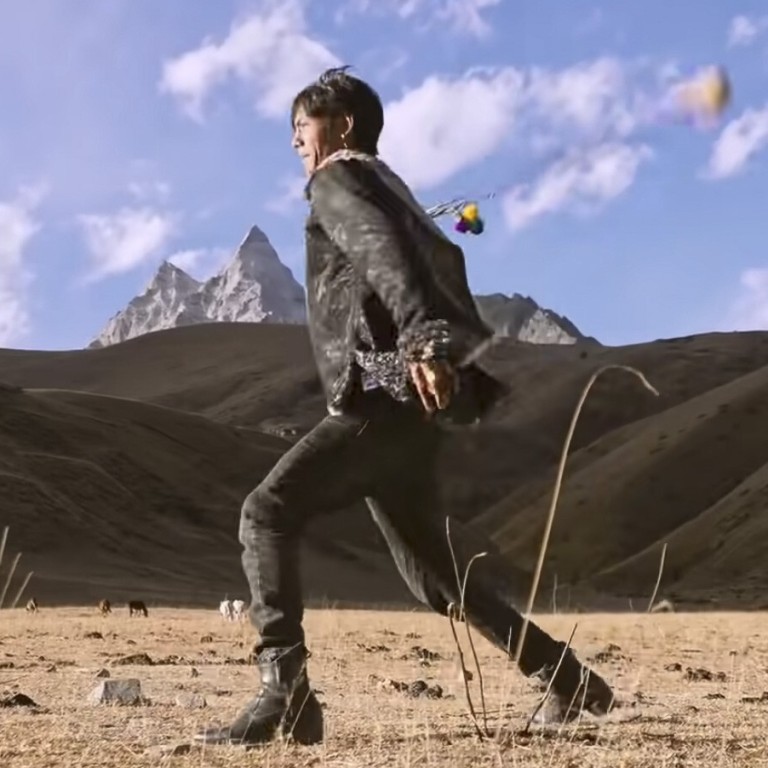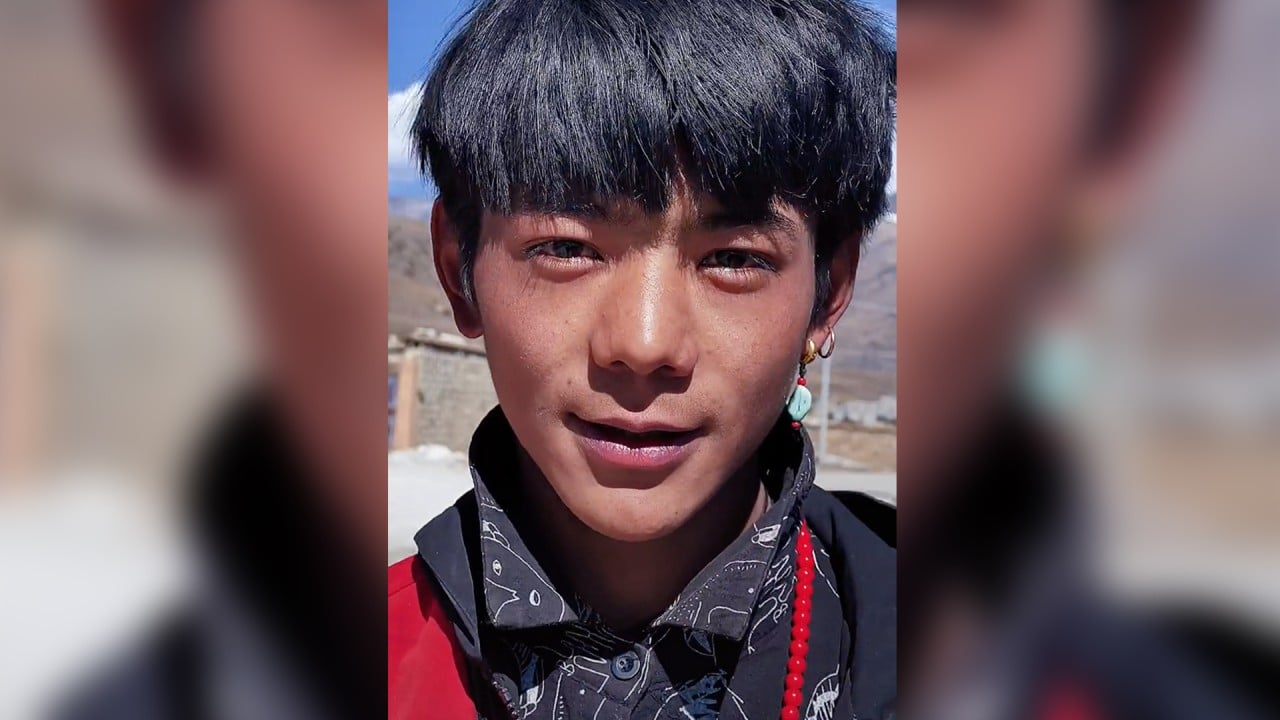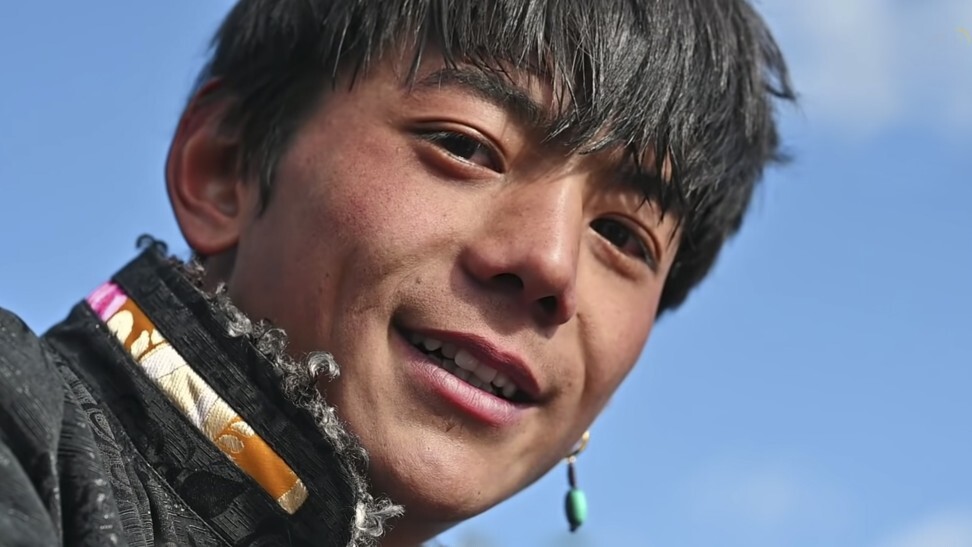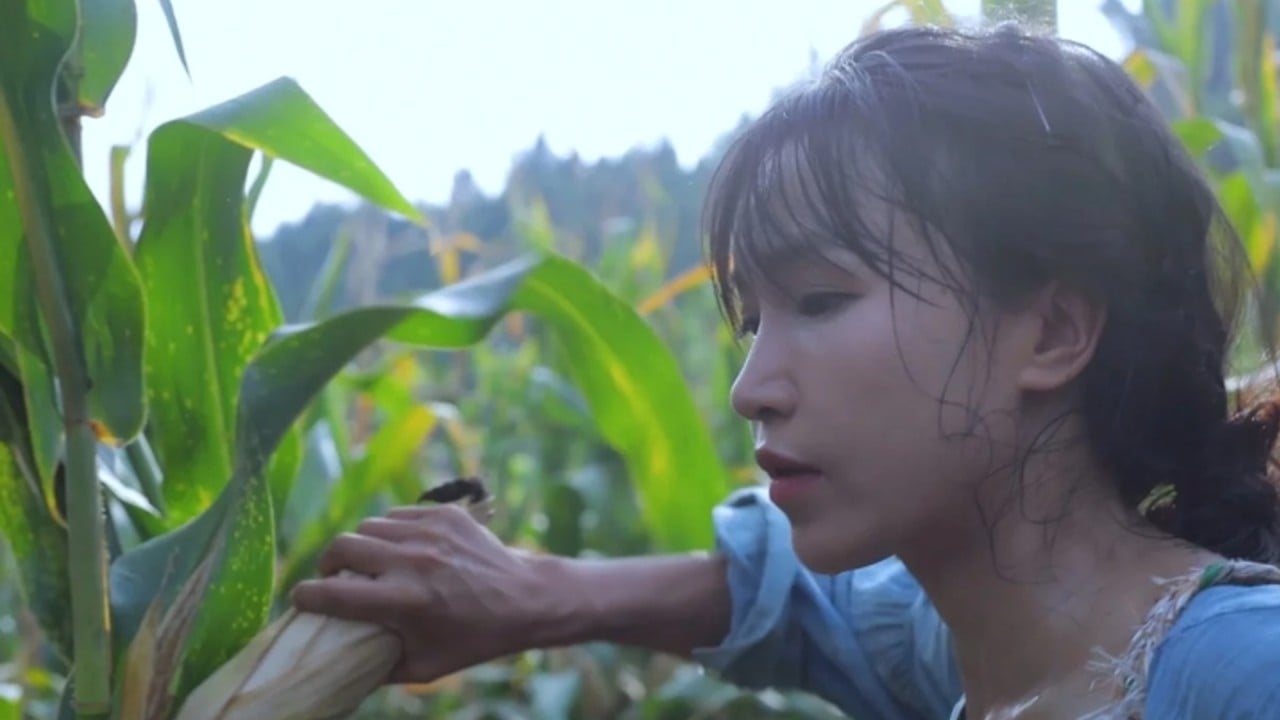
Cultivating internet celebrities: rural governments answer Beijing’s call to use online personalities to boost tourism and local economies
- A Sichuan county government is using online sensation Dingzhen, a young Tibetan man who went viral online, to boost tourism to the rural region
- In September, China’s Ministry of Culture called on local governments to scout out new internet talent to promote rural tourism
Before going viral, Zhaxi Dingzhen was your average Tibetan herder living in China’s southwestern Sichuan province. His typical day was spent tending to his flock and helping out at home. But a 10-second video posted online would quickly change that routine, turning Dingzhen into an online sensation overnight.
Soon after the video appeared online on November 11, China’s internet users marvelled at Dingzhen’s rugged good looks and herdsman lifestyle in the highland. Millions tuned in to watch a live stream with him and his uncle. Dingzhen, whose Tibetan name is Tenzin, talked to fans through a translator.
Dingzhen is not the first resident of China’s rural hinterlands to catch the attention of the country’s netizens, but he is one of the first to be co-opted by his local government to promote local tourism to the area. More local government tourism offices are now looking to foster their own online celebrities, answering a call from the central government to help revitalise rural economies.
“It looks like a random incident, but it’s not,” said Han Li, an associate professor of Chinese at Rhodes College in the US, referring to Dingzhen’s online fame. Han, who published a study last year on the increasing popularity of rural internet celebrities in China, said that the Litang government appeared to have prepared for an opportunity like this to promote tourism to the county.
“Urbanisation [has been] met with major roadblocks. It’s getting harder and harder to find jobs, and the high living costs mean that it’s increasingly hard for migrant workers to survive and settle down in cities,” she said. “The government is sending the signal, telling people that you should go back to your rural hometowns, where there might be more economic opportunities.”

01:15
‘Handsome’ Tibetan man in China gets job offer after finding fame online
Chinese authorities are hoping that the large online followings of internet celebrities can be used to economically benefit certain regions as Beijing prioritises the development of the country’s rural areas. In September, China’s Ministry of Culture and Tourism issued a notice to local governments, asking them to join an initiative to “cultivate rural internet celebrities”.
With Dingzhen, officials in Litang got their chance.
A week after the video was posted, a state-owned travel company in Litang hired Dingzhen as an “image ambassador”. They quickly shot a promotional video and released it online the following week.
The three-minute video titled Dingzhen’s World featured picturesque scenery from Litang, in Sichuan’s Tibetan Plateau, where it sits at a dizzyingly high altitude of 4,014 metres (13,169 feet).
According to state-owned news outlet The Paper, the partnership was also meant to protect Dingzhen from overcommercialisation and online abuse.
China triples the size of internet regulation, includes fake news and fraud
“Online traffic to Dingzhen must be controlled by Litang,” a local official said when deciding to hire Dingzhen, according to a report by Chinese media outlet China Business Journal.
The government also ramped up publicity for Dingzhen on social media platforms, playfully reminding fans that he is actually from Sichuan, and even opening social media accounts for his horse, Pearl.
The efforts seem to have paid off. The search volume for Litang in the first week of December was 620 per cent higher than in the same period last year, according to data from travel booking site Ctrip.
Hotel bookings for the Garze area, where Litang is located, were also up 89 per cent two weeks after the first video of Dingzhen appeared online compared with the same period last year, according to state-run media CGTN, citing data from travel booking site Qunar.

Wency Qi, a 24-year-old fashion blogger based in Sichuan’s capital Chengdu, travelled to Litang in late November soon after Dingzhen first went viral. Qi is a frequent traveller to western Sichuan, a mountainous area that makes up the eastern part of the Tibetan Plateau, but she had never visited Litang.
“Before Dingzhen, Litang was just a place people passed through on their way to Tibet, and people wouldn’t think of it as a destination or stay there for long,” Qi said.
Litang was not crowded during her trip, Qi said, but hotel staff and restaurant owners told her the town had seen more tourists than in previous years.
Tourists even had the opportunity to line up to get their photo taken with Dingzhen, which was how Qi got to meet the man of the hour.
Why Chinese tourism workers are being taught how to smile
Some of the older female tourists said Dingzhen was even more handsome in person and seemed more thrilled by the opportunity than she was, Qi recalled.
“The local government was thinking long-term and had a vision. They saw social media’s far-reaching influence over people,” Han said. “With international travelling hindered by the pandemic, they seized the opportunity for domestic tourism.”
In another case, a local official from Zhaosu county in western region of Xinjiang reportedly used her rise to online fame to help sell nearly US$150,000 worth of local agricultural goods.
He Jiaolong, the deputy county governor, posted short promotional videos of herself riding a horse in a red cape across a snowy landscape, eventually attracting more than 880,000 followers.

01:47
Horse riding official becomes online sensation in China with viral videos
One of the reasons these videos are so popular is that they satisfy urbanites’ imagination, according to Han. “Dingzhen and his exotic background are romanticised by people in cities, who find it all very different, innocent and appealing,” Han said.
Qi, who used to work as a German tutor in Shanghai, said she felt a particularly strong sense of happiness when travelling to Litang.
“[Dingzhen represents] wildness, simplicity, nature and vitality, and [he gives people] an urge to escape the city to look for an alternative in life. I think in 2020, people needed this kind of cure,” Qi said.
After handsome Tibetan lights up the internet, Chinese regions look for influencers
However, Litang may have been lucky with Dingzhen, as some say it will be difficult to replicate the success achieved by the handsome herdsman.
George Cao, CEO and co-founder of travel-focused digital marketing agency Dragon Trail Interactive, said Litang’s local state-owned travel company was ready to capitalise on Dingzhen’s popularity because it had been doing years of content marketing. Viral stars typically cannot be planned, though.
“It‘s always possible to cultivate smaller online personalities, but viral cases like Dingzhen are very difficult to replicate,” Cao said.

06:09
Chinese online star Li Ziqi provides an escape from urban life
As more local governments turn to online tools for publicity, a bigger challenge is ensuring that they offer an appealing travel experience, according to Cao.
They also need to think about how to package experiences into products, making them interesting and discoverable online, Cao said. Without that, a person’s online popularity will not last, he added.
“Whether they can translate a phenomenon into a travel experience that can be delivered, that’s what puts local governments’ abilities to the test,” he said.
Elderly women on China’s TikTok are falling in love with fake celebrities
Not all content about rural China is manufactured, though. Internet celebrities like Li Ziqi and Dianxi Xiaoge have amassed huge followings without any assistance from the government. Many urbanites frustrated by life in the city turn to videos of rural China in search of idylls to relieve stress.
“In China, decades of rapid urbanisation and the myriad of subsequent development-related anxieties have led to a noticeable nostalgia for the rural charm in mass media in recent years,” Han wrote in her study.
Both Li Ziqi and Dianxi Xiaoge are known for making beautiful videos that showcase a romanticised rustic lifestyle. A typical video might show them making food and household items from scratch with a countryside backdrop.

02:24
Chinese plus-size influencer in New York challenges stereotypes
The two have millions of followers on Chinese social media and video platforms. They have even gained popularity outside China, where Li Ziqi has more than 13 million subscribers on YouTube and Dianxi Xiaoge has more than 6 million.
Newer rural personalities like Qiaofu Jiumei and Huanong Xiongdi are also gaining popularity despite less refined and packaged videos. Their content features more dialogue and no English subtitles, so they are less popular outside China. But in China, they both have millions of followers on Chinese video platforms.
Beijing sees potential in leveraging this rural celebrity trend to fulfil its own goals. China plans to prioritise the development of agriculture and promote the use of digital technology in rural areas, according to reports by state-run news outlet Xinhua.
With the notice from the Ministry of Culture, Chinese officials are also hoping to find other success stories like those of Dingzhen and He.
The notice calls on local governments to scout and recommend people to be trained by experts to promote local products and tourist attractions through live-streaming or short videos, according to documents posted online.

